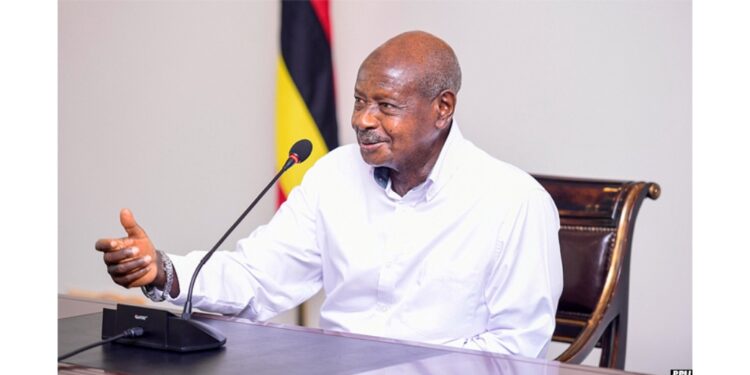By Ebi Kesiena
Ugandan President Yoweri Museveni has signed into law new legislation that reinstates military trials for civilians, sparking outrage from opposition leaders and rights groups who say the move directly contravenes a recent Supreme Court ruling.
The new law, The Uganda Peoples’ Defence Forces (Amendment) Act, 2025, was signed by Museveni and announced by Parliament on Monday via its official X (formerly Twitter) account.
“President @KagutaMuseveni has assented to The Uganda Peoples’ Defence Forces (Amendment) Act, 2025,” the post read, confirming the formal reintroduction of military court jurisdiction over civilians.
For years, Uganda’s government has faced criticism for using military tribunals to prosecute civilians, particularly political opponents of Museveni, who has ruled the country since 1986. Human rights advocates argue that these courts lack the independence and transparency of civilian judicial systems and are often used to silence dissent.
In a landmark decision earlier this year, the Supreme Court of Uganda declared the practice unconstitutional. The ruling, based on an appeal of prior legislation, forced the government to shift several high-profile cases, including that of longtime opposition figure Kizza Besigye, from military to civilian courts.
But instead of complying in full with the Supreme Court’s directive, Museveni’s administration introduced new legislation to override it. Parliament passed the bill last month despite protests from civil society and the political opposition.
Following the bill’s passage, the army’s spokesperson said the new law was necessary to “deter the formation of militant political groups that seek to subvert democratic processes.”
Museveni’s aides have also insisted that military trials are reserved only for civilians involved in violent acts using weapons, not for political dissent.
Uganda has a long and troubled history of using security forces and legal mechanisms to suppress opposition. Military courts, often operating without the procedural safeguards of civilian courts, have been a key instrument in this strategy.
Human Rights Watch and other international organisations have consistently documented cases of arbitrary detention, torture, and unfair trials involving civilians in military custody.
With the passage of this new law, those fears are likely to intensify. Legal experts warn that the legislation may trigger another round of constitutional challenges, particularly if authorities begin using it to prosecute political opponents again.




































